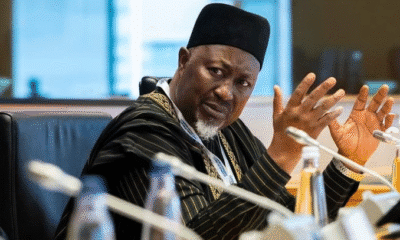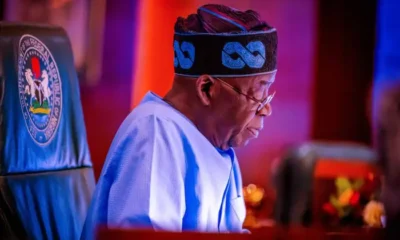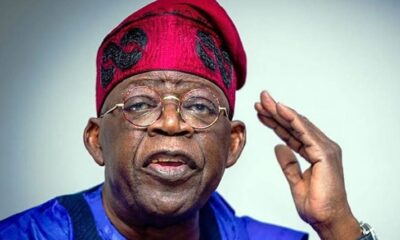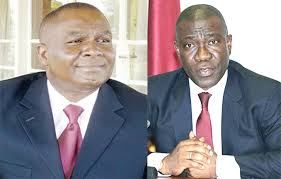Breaking News
Tinubu Govt slams 15% tariff on fuel imports to protect local refineries

President Bola Tinubu has approved the implementation of a 15 per cent ad-valorem import duty on petrol and diesel brought into Nigeria.
The new tariff, according to the presidency, is designed to protect domestic refineries and promote stability in the downstream petroleum sector.
In a directive dated October 21, 2025, and made public on Wednesday, Tinubu ordered the Federal Inland Revenue Service (FIRS) and the Nigerian Midstream and Downstream Petroleum Regulatory Authority (NMDPRA) to begin immediate enforcement of the new tariff.
The presidential approval was contained in a letter signed by Tinubu’s Private Secretary, Damilotun Aderemi, endorsing a proposal by FIRS Chairman, Zacch Adedeji.
According to the document, the policy forms part of a “market-responsive import tariff framework” aimed at reflecting true market conditions and encouraging local production.
Adedeji explained that the initiative was anchored on the administration’s Renewed Hope Agenda for energy security and economic resilience.
“The core objective of this initiative is to operationalise crude transactions in local currency, strengthen local refining capacity, and ensure a stable, affordable supply of petroleum products across Nigeria,” the FIRS boss stated.
He warned that the existing price gap between locally refined products and imported fuel had created market distortions and volatility.
“While domestic refining of petrol has begun to increase and diesel sufficiency has been achieved, price instability persists, partly due to the misalignment between local refiners and marketers,” he said.
Adedeji noted that import parity pricing often falls below cost recovery levels for domestic refineries, especially under fluctuating exchange rates and freight costs, a situation threatening the sustainability of local producers.
He added that the government now faced a twofold responsibility: “to protect consumers and domestic producers from unfair pricing practices and collusion, while ensuring a level playing field for refiners to recover costs and attract investments.”
According to him, the new 15 per cent import duty would discourage duty-free fuel imports that undermine domestic refineries and help create a competitive downstream market.
Petrol landing cost to rise by ₦99.72 per litre
Projections in the presidential approval memo show that the tariff could raise the landing cost of petrol by about ₦99.72 per litre.
“At current CIF levels, this represents an increment of approximately ₦99.72 per litre, nudging imported landed costs toward local cost recovery without inflating consumer prices beyond sustainable thresholds,” the letter stated.
Despite the adjustment, the memo noted that estimated Lagos pump prices would remain around ₦964.72 per litre ($0.62), still below regional averages in Senegal ($1.76), Côte d’Ivoire ($1.52), and Ghana ($1.37) per litre.
Dangote, modular refineries to benefit
The decision aligns with Nigeria’s broader strategy to reduce dependence on imported petroleum products and boost domestic refining output.
The 650,000-barrels-per-day Dangote Refinery in Lagos has commenced the production of diesel and aviation fuel, while modular refineries in Edo, Rivers, and Imo States are already refining petrol on a smaller scale.
Despite these advances, imported fuel still accounts for about 67 per cent of national consumption, a gap the government hopes to narrow through the new tariff regime.
























